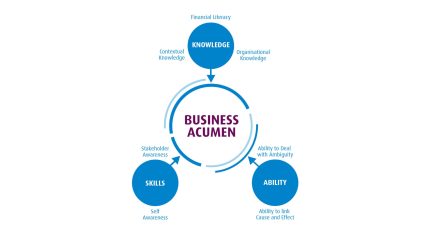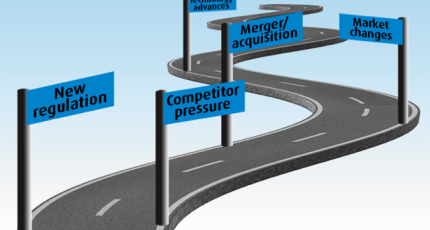Communicating Your Business Strategy
Do you want to turn your strategy into deliverable actions for your teams?
Communicating a business strategy effectively to managers and employees is crucial for achieving organisational goals and driving sustainable growth.
When a business strategy is clearly communicated, it ensures that everyone in the organisation understands its direction, goals, and the role they play in achieving them.
This alignment helps in fostering a sense of purpose and shared responsibility, motivating employees to contribute proactively toward the organisation’s success. A business strategy game is a highly effective way to communicate your strategy by providing the opportunity for your team, through discussion and collaboration, to understand its importance, the options and decisions aligned to it and the role they play in implementing it.
Read Business Strategy video transcript
Most organisations would claim to have a strategy, but how many can truly claim that it is a living, breathing guide for decision-making throughout the organisation?
If the strategy is truly embedded then it is the basis for all decision-making and the overall end goal is clearly understood by everyone.
One reason a great strategy doesn’t become a reality is because it doesn’t permeate far enough through the organisation. It gets lost somewhere in middle management, or maybe before that in the layer just below the senior team.
Research by the Chartered Institute of Management said “middle managers make an organisations strategic purpose a reality on the ground. They play a central role in managing and guiding people.” Yet, the same research found that many middle managers don’t feel confident in communicating their organisation’s strategy to their teams.
Engaging managers, at all levels, in a business simulation game is an effective way of building individual skills, particularly strategic thinking, and providing an experience of how business decisions are made and the compromises that are often required. A greater understanding of the strategy creation process and the balance required builds confidence and enables participants to recognise why their requests for investment and changes might not always materialise.
Research has shown that including a simulation or game in a development programme significantly increases participant enjoyment and perceived usefulness. Learning engagement is higher and practicing skills in a realistic setting aids the transfer of learning to the workplace. If you would like your management teams to embrace your organisation’s strategy, consider including a business simulation game in your development activities.
A living breathing guide for decision making
“People want guidance, not rhetoric; they need to know what the plan of action is and how it will be implemented. They want to be given responsibility to help solve the problem and the authority to act on it.” – Howard Schultz, CEO of Starbucks
Communicating your business strategy translates it into actionable plans, breaking down high-level objectives into tasks that team members can engage with and achieve.
Business strategies are often the responsibility of the senior management team and often change every few years. Are your middle managers, and their teams, being kept in the loop?
How can Elgood’s business strategy games help me?
A business strategy game will develop the decision-making skills of your staff and help ensure the results are aligned.
They provide the opportunity for participants to discuss real business issues, whilst working together to evaluate the options and make decisions aligned to the overall strategy.
As part of the activity your managers will develop the helicopter thinking required to move beyond functional management and to see the organisation as a whole. Participants will experience the difficulty of setting a successful strategy when faced with a constantly changing competitive environment. They will also have the opportunity to translate a high-level conceptual strategy into concrete actions for their own business unit and team, developing their decision-making skills.
Business simulation games are highly effective as they immerse participants in realistic, risk-free environments where they can practice decision-making and strategic thinking. Studies show improved retention rates, as participants better understand complex concepts through active participation.
Elgood Effective Learning’s business strategy games are designed to help participants appreciate the importance of your strategy and highlight the types of trade-offs required, showing that with limited resources not all projects can be pursued. Participants will recognise that the final decision often involves a compromise between organisational and individual preferences. The key is rational debate with compromise so everyone understands why the decision was taken and can commit to seeing it through.
If you want your strategy to succeed, the strategy needs to be actively communicated to all levels of management on a regular basis. Only by doing this will it become a living breathing guide for decision making.

We have designed a range of business strategy games. These can be purchased and used in-house with a member of your training team or a senior manager taking the facilitation role. If you do not have an experienced facilitator, Elgood can do this for you.
If you are unable to find a product that suits your requirements you might like to consider having a game or business simulation designed to meet your specific need.
Business Strategy Frequently Asked Questions
What is Experiential Learning?
This refers to learning that an individual derives from experience. The term comes from the book Experiential Learning: experience as the source of learning and development published by David A Kolb (Englewood Cliffs, Prentice Hall, 1984).
In the book Kolb explained how a person learns through a cycle of discovery and experience. The Kolb learning cycle has four stages.

In situations where it is difficult for people to gain live experience the use of games and simulations can be used to mimic reality. The activity provides the active experimentation and concrete experience and the individual can then learn through reflective observation and abstract conceptualisation with the potential of going around the circle again to test out their new-found knowledge.
Retention rates from activities that incorporate experiential methods result in significantly higher retention rates – 75% from practice by doing in comparison to 5% from a lecture.
Research by National Training Laborotries.
What is a business strategy?
A strategy is the pattern of activities that need to be followed in pursuit of a long-term objective. When applied to a business it refers specifically to the actions that will be required by staff, at all levels, to ensure the business achieves the stated goals. The goals may be embodied in a purpose, mission or vision statement or all three.
What is a business strategy game?
A business game is a method through which individuals learn about how a business or organisation works. The content of a business strategy game is a business strategy. The game could involve a start-up situation where participants have to create and then implement their strategy reacting to competitor activity as they progress or it could involve taking over an existing business and seeking to implement a strategy that has already been decided. For example, where a head office or regional unit has decided on the overarching strategy and smaller business units have to implement this in their own environments.
In all cases the game element allows participants to play out various different scenarios and to learn about the potential outcomes in a safe environment.
Get in touch to discuss how we can help you to communicate your business strategy - call us today on 0118 982 1115
Our top products for communicating your business strategy
What’s your core issue? Is it absence of a strategy, multiple interpretations of a strategy, multiple strategies (official and unofficial) or poor understanding and therefore implementation. Or maybe a combination of all of these? These simulations can help generate conversations, create a common understanding and enable your staff to achieve the stated objective.
Elgood Effective Learning - for improved performance - call us today on 0118 982 1115
Insights
Business Acumen is a combination of knowledge and skill informed by experience: knowledge about key business issues, the skill to apply that knowledge, and the confidence to take action informed by past experiences. At Elgood our business acumen definition definition is: The ability to take a ‘big picture’ view of…
Most organisations would claim they have a business strategy, but is it a living, breathing guide for decision making or a piece of paper no-one looks at? If it is a guide for decision-making, is it used by the senior management team, or does it permeate down to those who…
Organisational change is ubiquitous. According to the CIPD, “All organisations are in flux: changing their focus, expanding or contracting their activities and rethinking their products and services.” Changes can be large and can affect a whole industry, or they can be small and affect a simple process within a single…








